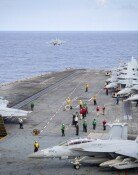Gov`t stifling of competitiveness
Gov`t stifling of competitiveness
Posted December. 28, 2010 01:30,
Since the global economic crisis that erupted in late 2008, the Korean government has focused on reviving small- and medium-size companies, which have teetered on the verge of bankruptcy. Though the government has attained significant results, the question remains over whether companies that received state support have secured sustainable competitiveness. Providing unlimited support to uncompetitive businesses with taxpayers money will raise the danger that the companies will self-destruct due to moral hazard. Systemic support should be provided for competitive businesses.
Korea has poured an astronomical sum of taxpayers money into agriculture, whose competitiveness is going backwards. In 1993, the Kim Young-sam administration spent nearly 60 trillion won (52.2 billion U.S. dollars) to restructure the domestic agricultural industry after joining the World Trade Organization. The Kim Dae-jung administration also provided support for the sector by offering low-interest loans and debt write-offs, but the results of the restructuring were insignificant. The Roh Moo-hyun administration set aside more than 119 trillion (103.5 billion dollars) to support the agricultural sector when it signed a free trade agreement with Chile. This aid was similarly ineffective, however, because Seoul focused on compensating losses or reduced income rather than on enhancing competitiveness.
At a Dec. 15 briefing by the Knowledge Economy Ministry and the Small and Medium Business Administration, President Lee Myung-bak said, It appears that sectors receiving more government support are more backwards. A government official said the president was referring to small- and mid-size businesses and the agricultural sector.
A cold reality of the market is that industries not competitive in technology and products cannot survive even if they receive enormous amounts of financial aid from the government. General Motors, once the worlds largest automaker, received all kinds of support from the U.S. government but was bailed out by Washington after going belly-up. When the U.S. auto industry, whose ability to survive on its own has significantly weakened, will recover remains unknown.
In the past, Korea designated sectors specifically for small businesses, restricting investment in those fields by large companies. This policy ended up weakening the competitiveness of those industries, however. For instance, adhesives, which are essential to the semiconductor industry, were placed off limits to big business. As a result, the domestic adhesive industry was slow to develop new technologies. The country now depends on Japanese imports for all adhesives needed for the Korean semiconductor industry. In 2007, Seoul abolished the system of designating sectors for smaller businesses only.
The agricultural industry can grow into a major sector for Korea with the proper education and technological infrastructure and higher competitiveness. The Netherlands has farmland similar in area to Koreas but its climate conditions are more unfavorable. The Netherlands, however, is the worlds No. 3 agricultural powerhouse thanks to technology- and capital-intensive investments in agriculture. Koreas agricultural industry should break away from its long dependence on government support. President Lees comment will prove meaningless if it remains just words.





![술의 위기, 범인은 넷플릭스와 위고비? [딥다이브]](https://dimg.donga.com/c/138/175/90/1/wps/NEWS/IMAGE/2026/02/27/133435221.1.jpg)

